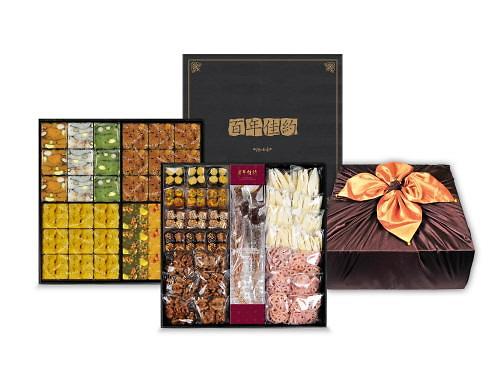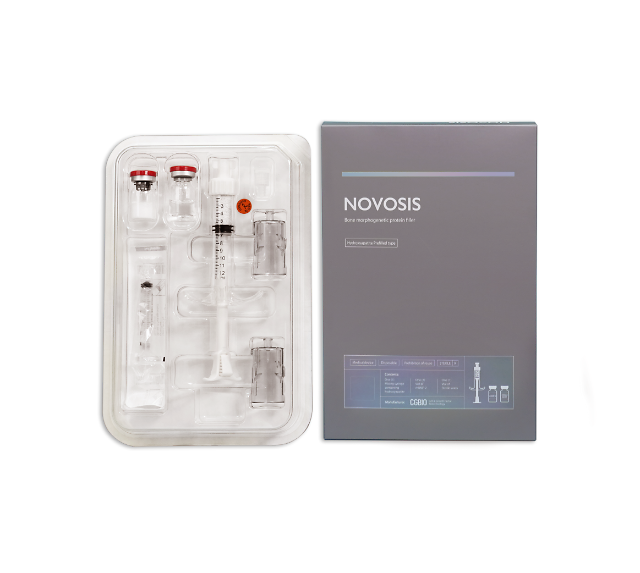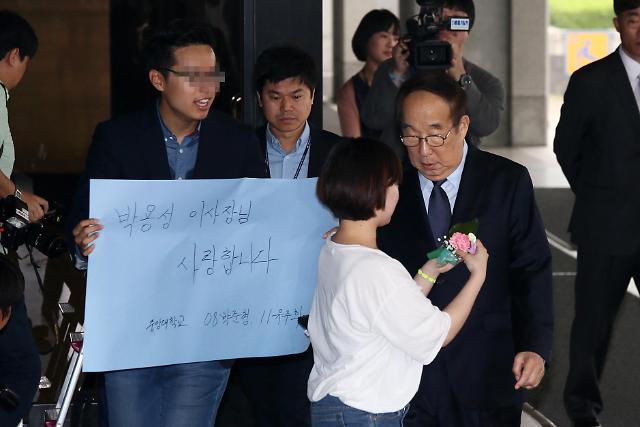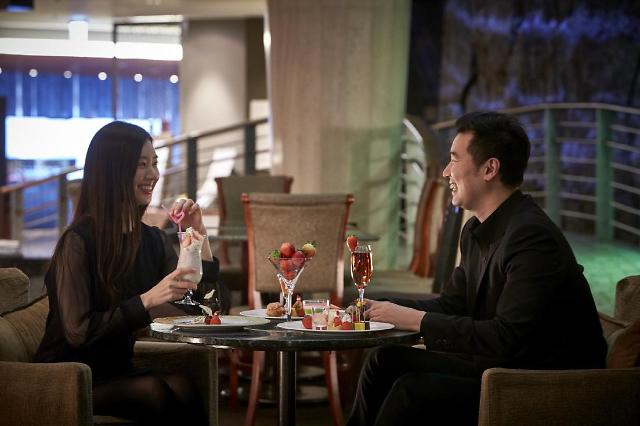
[Aju News DB]
The eyes of South Kora's legal society are fixed on the trial of a rice cake gift box sent to police with genuine kindness that represents the first case under a controversial anti-graft law enforced last month.
The case was sent to a district court in the eastern city of Chuncheon after a police investigator received a rice cake gift box worth 45,000 won (39.9 US dollars) from a man involved in a lawsuit on September 28 when the law took effect.
The man sent his gift to the investigator in the display of gratitude for adjusting the date for his appearance at a police station, without knowing it could violate the unprecedented anti-graft law with far-reaching repercussions.
Sending such an inexpensive gift box as a token of appreciation has been an accepted social practice in South Korea, but the investigator followed an obligatory procedure to return the gift box and reported to inspectors who referred it to a court after concluding the man should be fined despite his argument that he acted purely out of goodwill.
The gift box received widespread media attention because the man would be the first to be punished under the Improper Solicitation and Graft Act. If he is found guilty, he can be slapped with a fine of up to 225,000 won.
The law has a direct impact on millions of public servants, teachers and journalists who are banned from receiving meals priced higher than 30,000 won, gifts exceeding 50,000 won, and congratulatory and condolence money over 100,000 won.
Violators face a maximum penalty of three years in prison or a fine of up to five times the amount accepted.
It is designed to eradicate corruption, introduce a transparent society, and end a deep-rooted practice of offering expensive gifts or money in return for favors. But three weeks into its enforcement, confusion persists in the daily lives of public servants and even ordinary people because it's hard to draw a line between accepted hospitality and bribery.
A state commission in charge of enforcing the law has been flooded with hundreds of inquiries every day.
The commission, however, made a phlegmatic decision that teachers receiving cans of coffee from students or picnic meals from their parents must be punished because any exchanges of meals and gifts, regardless of their monetary value, are banned between them.
Lawyers and legal experts have called for more clear and well-defined guidelines and rules, arguing the law's ambiguity was causing confusion over how to interpret and enforce.
Customarily, South Koreans donate cash when they attend wedding ceremonies, funerals and other crucial family events involving friends, relatives, and company colleagues, out of good will to help reduce their financial burden.
Aju New Lim Chang-won = cwlim34@ajunews.com




